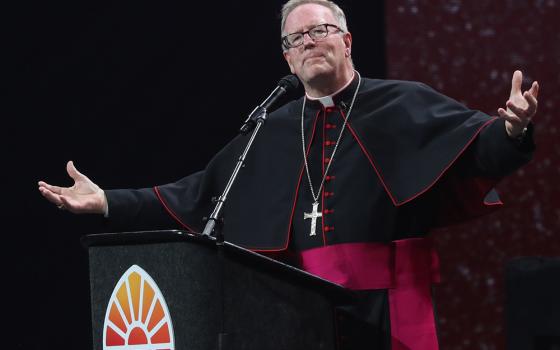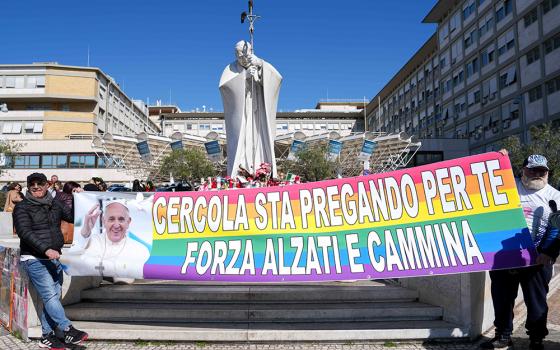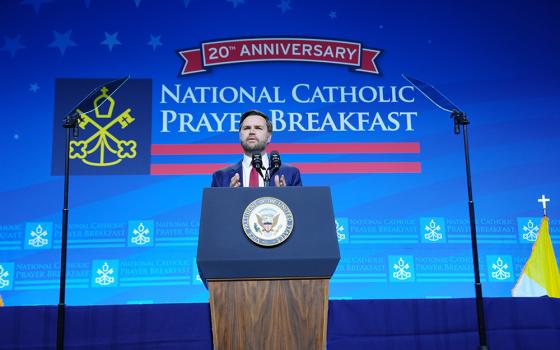
(Unsplash/Jamez Picard)
It always seems kind of unnecessary at this point to ask the candidate if he or she is ready for confirmation. But it's an important part of the ceremony because as we all know, the Sacrament of Confirmation is one of the sacraments that commits us to give witness to our faith. So this gives the opportunity for our candidate to proclaim her belief in our faith and I thank her for making that commitment. Now before we celebrate the sacrament, it's important that we reflect for a few moments on the Scripture lessons of today.
In order to do that, I think it would be very helpful for us to remember the Gospel lesson that we heard on the second Sunday of Easter. That's the lesson where St. John in his Gospel tells about the disciples gathered in the upper room on Easter Sunday night. Of course, if you remember, they had all abandoned Jesus and they had failed so dramatically. They were in fear of the fact that Jesus was so cruelly put to death, so maybe it's going to happen to them. But even more, they were ashamed, I'm sure, at their failure.
Do you remember how John describes what happened? They're gathered there in fear and suddenly Jesus is in their midst. What's the first thing he says to them? "Peace with you." He forgives them because he loves them. "Peace be with you." But then he goes on to say, "As God has sent me, so I also send you." That's what's happening today. We celebrate this Sacrament of Confirmation and when we receive the sacrament, we make this commitment to accept from Jesus a mandate to carry his message.
Most of us in this church have already made that commitment. "As God sent me, I send you." Then he breathed on them, "Receive the Holy Spirit. Whose sins you forgive, they're forgiven. The evil you restrain, it's restrained." Jesus gives them a commission: Go out into the world, overcome evil, proclaim the good news. You're sent — all of us. If we listen to today's lesson, the first lesson we hear is how Paul and Barnabas have gone out into other parts of the world now already.
They're giving this message of Jesus and they're drawing large numbers of people to follow because they give witness to Jesus and to his love, and people are coming. They traveled through five or six different cities and they come back to Antioch where they started and announce to the church what's going on. The good news is spreading and people are flocking to hear the message, so it's being carried out. But what is the most important part of the good news?
This takes us back to the Last Supper. Judas has just left because he's going to betray Jesus. The other disciples are still with Jesus and he speaks at great length to them and with them. But at the point that we heard in the Gospel today, Jesus tells them what is the most important part of the good news. He says, "You must go out into the world and proclaim God's love. This one commandment I give you: Love one another as I have loved you." Then he says, "Greater love than this no one has than to lay down your life for your friends."
Love one another — that's what we're called to do, to make God visible because God is love and where there is love, there is God. We must spread this love in the world. It doesn't take much effort, I don't think, for any of us to reflect on what's happening in our world — the violence, the threat of war and if it happens, nuclear war and the destruction of our planet, if it ever happened. But the violence is everywhere. The threat of war becomes greater, it seems, almost each day.
Where does that violence begin? It begins in our everyday life. We are the ones called to avert that violence, to send it away by bringing love wherever we are. It starts with our family, obviously. "Love one another as I have loved you." That's what Jesus said to his closest friends, and of course to his mother who was there. "Love one another as I have loved you." But it goes beyond our immediate everyday life, into our world.
Look at all the people fleeing violence from other countries. Their lives are threatened every day so they must flee. This is happening in various parts of the world. Certainly we're all aware it happens at our border, but what are we doing? Jesus said, "When I was a stranger you took me in." We're trying to push them away. I came across this article about what's happening in Jordan, a country bordering on Syria, where many, many people are fleeing the terrible violence in that country.
This is a newspaper reporter and he says, "I asked a Jordanian man how he felt about the massive influx of Syrians. He replied with concern, 'Syrians are taking even the lowly jobs. An employer can pay them 200 Jordanian dollars a month rather than the 300 dollars he would pay a Jordanian. This causes anger.' But then he says, 'But what can we do? They are our brothers and sisters so we take them in.' " That's what Jesus is asking of us: "Love one another as I have loved you.
Think of the violence in our country. Here's something that seems almost incredible to me. The last two instances of school violence, the shooter was stopped from killing many students because each time a student had the courage to lunge at the shooter, and then with help from other students, take him down. The first person who lunged actually was killed, a young high school boy, 17 years old.
But the rest of the kids were saved. "Greater love than this no one has than to give your life for another." That's proclaiming the good news of Jesus, preventing violence to others by giving your own life. Most of us don't expect ever to be challenged to that extent, but as we reflect on this and understand how a teenage youngster who was very faithful to his religious practices (He was a Christian. Kendrick Castillo was his name.) followed what Jesus asked to the fullest extent.
Advertisement
I hope as we reflect on something like that, we would understand that we too have to love one another as Jesus loved us and remember that greater love than this no one has than to lay down your life for your friend. Even though we don't go to that extreme, we must find the ways in our everyday life to love one another in our homes, our communities, to welcome the stranger, the refugee, to work to end the violence in our world, to bring the fullness of the message of Jesus.
We're called to be witnesses to the love of God. I pray and ask all of us here to pray today as we celebrate this Sacrament of Confirmation that every one of us will deepen our commitment to follow Jesus, to bring his love wherever we are, to overcome the hatred, the violence, the killing that goes on in our world. "Love one another as I have loved you." That's the way we witness as we become a confirmed Christian and as we live out our confirmation for the rest of our lives.
Editor's note: This homily was given May 18 at St. Lucy Catholic Church in St. Clair Shores, Michigan. The transcripts of Bishop Thomas Gumbleton's homilies are posted weekly to NCRonline.org. Sign up here to receive an email alert when the latest homily is posted.








